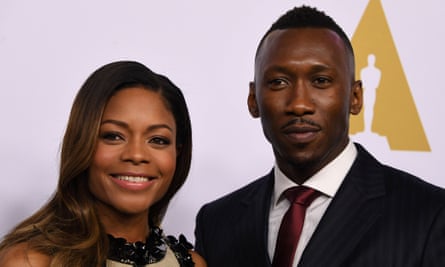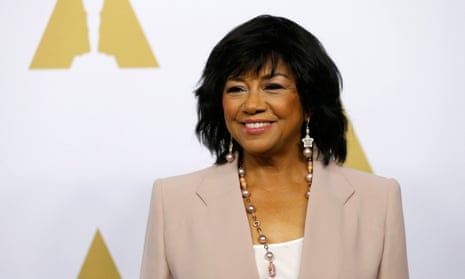Amid the opulence and grandeur of the Beverly Hilton ballroom, the president of the Academy of Motion Pictures Arts and Sciences, Cheryl Boone Isaacs, used her speech at the annual Oscar nominee luncheon to criticize Donald Trump’s executive order banning entry for travellers from certain muslim countries, saying: “America should always be not a barrier but a beacon.”
Last year at the luncheon nominees referred to an “elephant in the room”, which was the burgeoning outrage over diversity; this year it was the absence of film-makers affected by the travel ban. Taraneh Alidoosti, who stars in nominated film The Salesman, and the film’s director, Asghar Farhadi, both said they would not attend the ceremony in reaction to the recent actions and executive orders of President Trump.
“Each and every one of us knows that there are some empty chairs in this room which has made academy artists [into] activists,” said Boone Issacs, addressing their absence.
“There is a struggle globally today over artistic freedom that feels more urgent than at any time since the 1950s. Art has no borders. Art has no language, and doesn’t belong to a single faith. No. The power of art is that it transcends all these things and strong societies don’t censor art; they celebrate it.”
She added that America should be a beacon rather than serving as a barrier to creative freedom. “We stand up in support of artists around the world we stand up to those who would try to limit our freedom of expression and we stand up for this fundamental principle: that all creative artists around the world are connected by that unbreakable bond, and more powerful and permanent than nationality and politics. And just as our work does not stop at borders, borders cannot be allowed to stop any of us.”

Boone Issacs also suggested that the academy played a role in shaping public opinion over issues such as diversity. She said: “When we expand our membership, when we reach out to be inclusive, we set a shining example. When our storytellers tackle issues of importance from religious intolerance to racism to sexism … we become agents of change.”
The defiant tone was decidedly different to last year when Boone Issacs was in defensive mode as the #OscarsSoWhite controversy played out during the 2016 awards season. There were references to the work she has done since then, such as introducing 683 new academy members (46% were women and 41% people of color), who will have a say on who wins the awards, saying that over the last 12 months “real progress has been made”.
That progress could be seen in this year’s nominations as the academy managed to avoid having a third consecutive year without any nominees of color in the acting categories. This year nominations include: Denzel Washington and Viola Davis for Fences, Ruth Negga for Loving, Dev Patel for Lion, Octavia Spencer for Hidden Figures and Naomie Harris and Mahershala Ali for Moonlight.

Comments (…)
Sign in or create your Guardian account to join the discussion